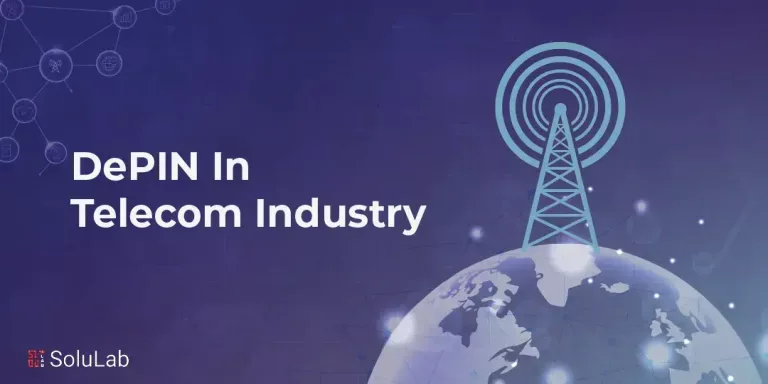
Nowadays Machine Learning (ML) is helping energy companies analyze massive amounts of data. Most of the data on energy consumption is collected through IoT devices, such as sensors.
To analyze such Big Data and get insights, you need to find a data science consulting company to collect that unstructured data first.. After, transforming it to structured format, store and then apply advanced machine learning algorithms to find correlations. That is why use of machine learning in the Energy industry is not an easy solution.
The biggest advantage of ML in the energy sector (energy-tech) is that algorithms can be trained on the new data sets. It would definitely help to scale such a solution. But how exactly Machine Learning could help? Some of the use cases below.
Machine Learning use cases in Energy industry
Anomaly detection in energy consumption – to ensure smooth operation and prevent unexpected events.
It is hard to see where the electricity is being used in the electricity consumption data. This makes it hard to detect a malfunctioning piece of equipment. If one of these systems fails or is misconfigured this could cause negative effects, such as fire.
The Machine Learning algorithms can constantly monitor, analyze energy consumption, detect emerging problems and assist in the analysis to improve performance. It also helps to avoid big financial losses.
Developed an machine learning algorithm can automatically define the type of object (e.g. supermarket, high school) and then, based on energy consumption detect and categorize anomalies in real time.
Such a solution in real time automatically finds an anomaly in energy consumption and informs users who can make decisions very quickly. It helps to avoid big financial losses.
Energy demand prediction – the most popular application of Machine Learning in Energy industry
Another use of machine learning algorithms is to determine energy demand will be on a particular day. This is done by tracking how daily energy consumption changes for individual customers over time.
Machine learning models are able to generate very accurate energy demand and consumption forecasts. Those predictions could be used by facilities and building managers, energy companies and utilities companies to deploy energy-saving policies. Manufacturing companies with prediction help can make plans of how to optimize the particular operations and energy storage systems.
Indicating the optimal energy price using machine learning in energy industry
Price optimization models use the power of neural networks to predict demand for energy consumption and make optimized pricing recommendations to help the energy companies meet target goals. It has several benefits over expert-based pricing system:
- Such models could analyze huge amounts of data (Big Data) that are unmanageable for people.
- They are able to learn non-linear correlations between energy supply and demand to make counterintuitive pricing recommendations.
- Transparent big data-driven pricing strategy and recommendations that are easy to monitor.
- Saves pricing managers time from routine work and allows them to make only high-level decisions.
Business recommendation engine
To support decision making processes. Providing customer-oriented solutions that understand the changing needs of customers and automatically generate recommendations. Such recommendations could support decision making in areas of pricing, energy production and selling areas. Business departments could use it as a support and quantitative reference.
Machine Learning in Energy industry helps to optimize Contracted Capacity
Machine Learning algorithms through elaborate selection the optimal contracted capacity (CC) helps to minimize total cost of energy expenses.
Energy disaggregation (signals disaggregation)
Separation of profiles of individual receivers from the energy profile signal to better consumption behavior improve energy efficiency.
And many more cases where ML could help: Select the optimum size of energy storage, Scale EV charging station, Calibration of photovoltaics (PV), Selection of optimal tariffs of the distribution system operator, Defining the relationship between power quality and customer productivity and correlation of receiver failures with power quality parameters
Business Intelligence software could help you to analyze gathered data and turn it into insight
Using ML solutions you could collect a lot of signals and information. Some of the results could be integrated in application for autonomous work but some data needs to be analyzed by business users. Business intelligence services provide well-built reporting and data processing infrastructure is able to ensure the collection, integration, measurement and analysis of data in order to draw useful conclusions from it. Companies can use these insights to make more appropriate decisions. Intelligent reporting helps companies to make effective decisions based on data in the following business areas:
Analysis of historical data
Historical data on energy consumption can help to monitor and track energy consumption over time and take appropriate actions in terms of energy consumption.
Additionally historical data will help you to understand seasonalities and track trends that are significant in energy consumption, sales and production.
Analysis of energy production
BI solutions must help in the analysis of power generation and power outages and help solve problems in real time.
Real time energy monitoring
Modern Business Intelligence softwares is able to extract data from data sources in real time. This feature together with built-in notification system and machine learning signals could inform decision makers about different abnormous events.
Benefits that companies can get through the use of intelligent data solutions with machine learning in energy industry
Better data quality – bad information or data on past or current activities may lead to wrong decision making. An appropriate reporting system with features helps companies to achieve better data quality and make smart decisions more effective.
Flexible reporting:
System users will be able to analyze data anywhere at any time. Mobile reports will allow you to make key decisions regardless of where the decision maker is.
Data Governance:
Responsible for determining information and data quality, setting good standards, and ensuring that the information and quality is achieved at a very good level. Effective Business Intelligence solution ensures that these processes are carried out in an orderly fashion.
Efficient Master Data Management:
Business Intelligence (BI) helps to properly maintain data in companies database and data warehouse. Master Data Management (MDM) provides companies with valuable information about company’s key business entities and areas such as vendors, customers, products, etc. Companies from the Energy industry rely heavily on this kind of data for critical and proper decision making.




